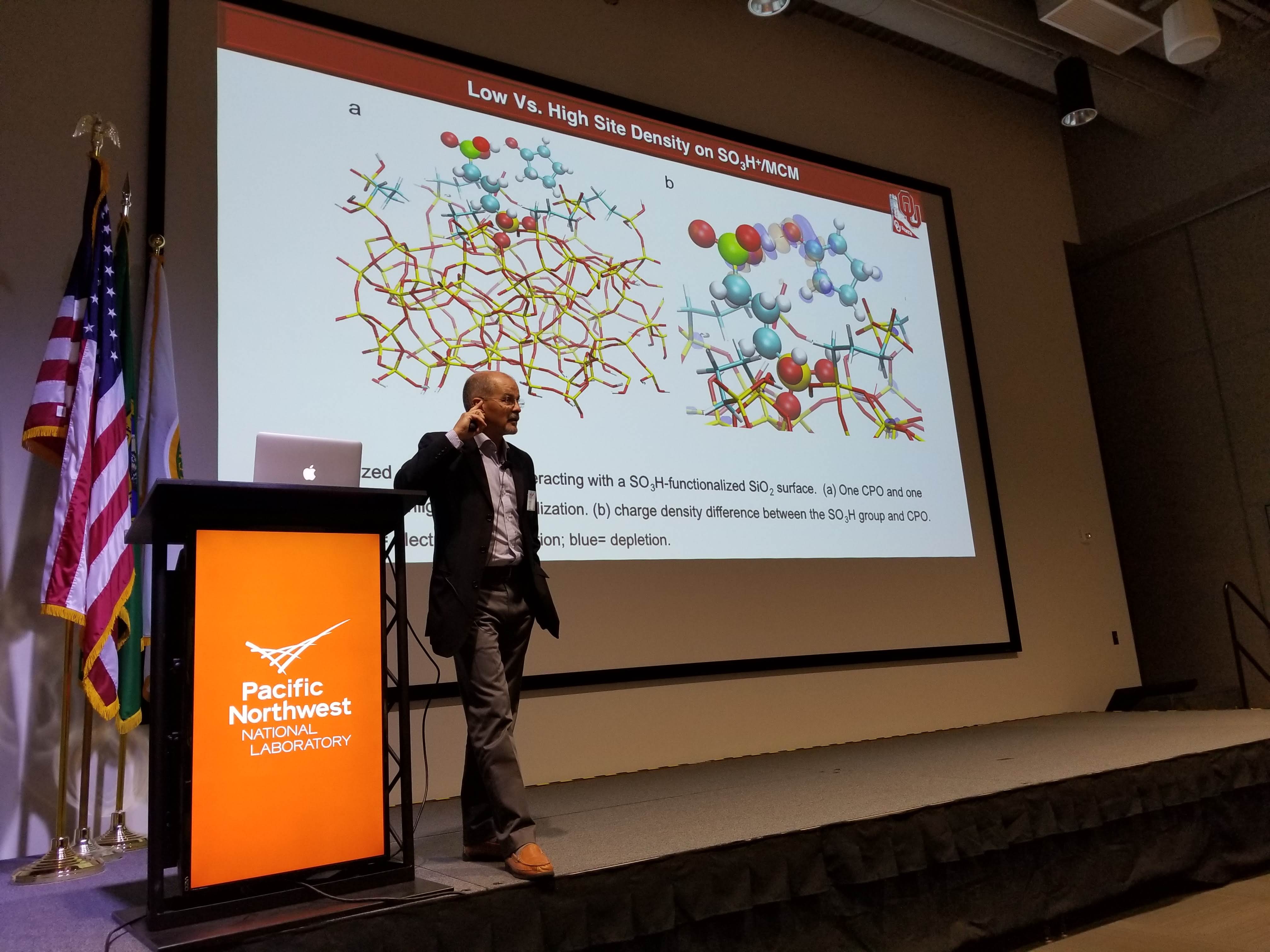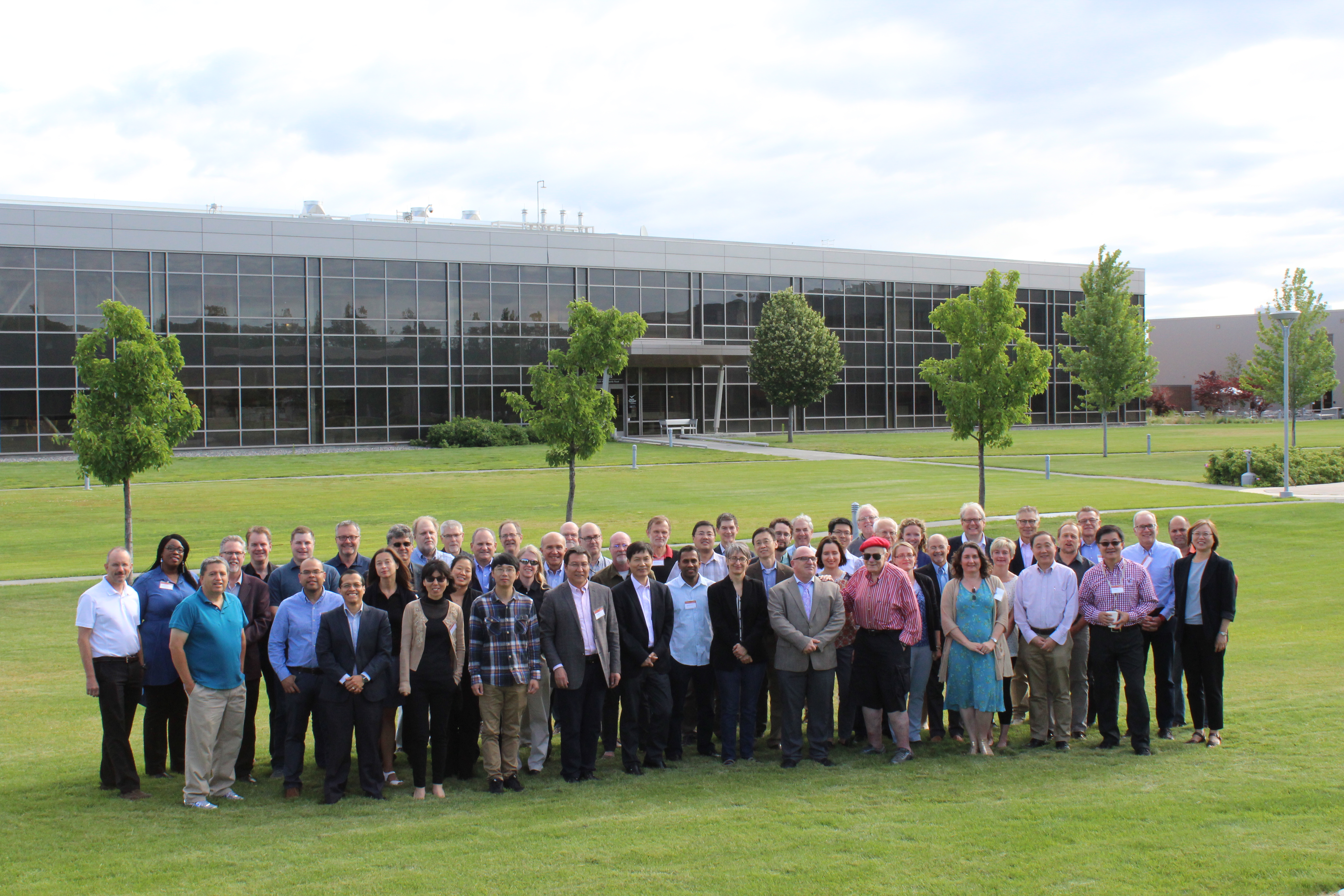Catalytic Reactivity in Complex Environments: A PNNL Workshop Report
New West Coast Collaborative Network Initiated
By IIC Director Johannes Lercher and IIC Deputy Director Zdenek Dohnalek
Molecule-molecule and molecule-solid interactions in condensed media are central to many research areas. Due to the complexity of such interactions, understanding the underlying fundamental aspects is highly challenging.
Together with colleagues across the country and the globe, scientists at the Institute for Integrated Catalysis (IIC) at Pacific Northwest National Laboratory (PNNL) identified these chemical transformations in complex environments as a critical frontier in catalysis&mdashone that cannot be addressed in isolated efforts. The goal was to build upon and extend the grand challenges identified in the recent report on the Department of Energy's Basic Energy Sciences' 2017 Workshop on Basic Research Needs for Catalysis Science.
To launch a dialogue between otherwise self-contained research communities, the IIC organized a workshop that brought together more than 80 scientists. The two-day workshop took place at PNNL June 20-21, 2019. Its goal was to define challenges in a specific community and explore potential similarities and dissimilarities across the boundaries of catalysis disciplines.

Professor Daniel Resasco from the University of Oklahoma talks about how solvents and surfactants affect H-transfer and C-C bond formation steps in catalytic reactions.
Discussions focused on three topics: Creating novel interfaces, catalysis in condensed phase, and electrocatalytic transformations—all areas in which greater fundamental insights can help enable new processes for a sustainable energy future. The workshop balanced the presentation of findings with open discussions among participants, providing a basis to bridge different approaches to understand chemistry among various fields. Moreover, it allowed for dialogue that will serve as the basis for future research interactions. It delineated the differences in the language, approaches, and models employed in different fields of catalysis.
IIC Catalysis Workshop Addresses Challenge
Frequently, challenges to understanding molecule-molecule and molecule-solid interactions in condensed media are addressed by first applying a reductionist approach. Gas-phase chemistry and catalysis at gas-solid interfaces are used to probe and quantify the principal interactions on all involved constituents and determine their consequences in chemical transformations.
While this approach is critical for advancing the understanding of chemical transformations, it necessarily neglects coupled multi-body interactions that become more and more prevalent as the complexity of the systems and the density of reacting species increases. Understanding the extensive range of possible mutual interactions requires insight and collaborative efforts across different fields of chemistry, physics, and catalysis.
Emerging Novel Approaches
Several workshop groups brought forward new ideas.
One idea centered on the need for the synthesis of catalytically active sites that tailor enthalpic and entropic stabilization of reacting substrates along catalytic pathways. Spatial confinement, combining design principles from both inorganic, organic (bioinspired) materials, was identified as a potential path to sterically stabilize transition states. Combining thermal (heat bath) methods, with approaches using electric potential, photons, as well as biological redox steps has been advanced as a possible solution that taps into the best of all disciplines to provide the energy for chemical transformations.
Understanding the impact of solvents and linking this insight into the design of catalytically active sites were identified as another path to maximize activity and selectivity of a novel generation of catalysts. The opportunity to take advantage of non-covalent interactions and utilizing hydrophobic and hydrophilic interactions in a reactive environment makes this path an especially attractive option.
The ability to analyze catalysts three-dimensionally at an atomic and molecular level under reaction conditions was identified as a critical need for progress in our level of understanding.
For the complex interface addressed, X-ray and nuclear magnetic resonance-based methods were recognized as most promising, and the need for large-volume access and of further method development was emphasized. Developing methods and linking it to the insight for fundamentals of catalyst substrate interactions and transformations requires carefully chosen model systems through which the elements of chemical transformations can be traced back to optimistic and molecular models.
It became obvious that surface science studies in condensed media would be of unique importance to provide benchmarks for conceptual and theoretical analysis.
Theory and computational catalysis were an integral element in all aspects that were discussed. In the path forward, the importance of model systems that gradually increase in complexity was stressed. The key of this approach is to maintain high fidelity in the gradual translation of the inside from well-chosen models to complex three-dimensional interfaces. The emerging importance of data science to translate knowledge from specific systems to a higher level of generality and to limit the exploration of the reactive space were eminent.
In the concluding discussion, the participants unanimously agreed to continue and strengthen common interdisciplinary scholarly work. The attendees decided to initiate a collaborative network across the western United States open to all interested scientists. Five focal areas were identified: human-made carbon recycle (polymer upcycling), organic carbon recycle, photocatalysis, biomimetic approaches to catalysis, and electrocatalysis.
PNNL plans to convene follow up workshops to help organize a framework for collaboration among interested colleagues. Scientists interested in participating should contact Zdenek Dohnalek.

More than 80 researchers participated in the June 2019 Catalytic Reactivity in Complex Environments Workshop at PNNL.
